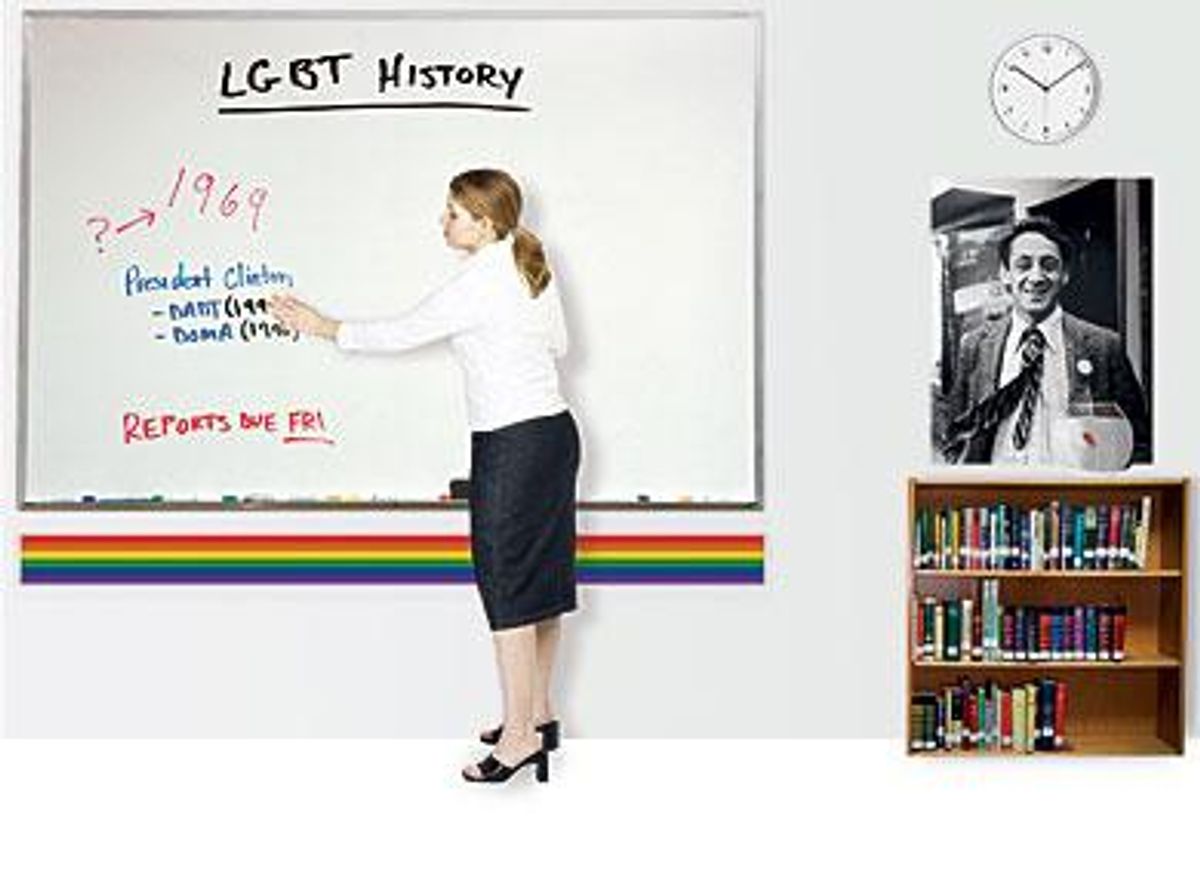Arts & Entertainment
Teachable Moments
Teachable Moments

By continuing to use our site, you agree to our Private Policy and Terms of Use.
Teachable Moments

It's an irrational fear, but one entrenched among many Americans: Introduce LGBT content into the public school curriculum, and you "promote" homosexuality.
The research, however, shows a different reality. Scholars have found overwhelmingly that an inclusive curriculum reflecting the existence of diverse communities in our pluralistic society benefits everyone and hurts no one. A gay-inclusive curriculum not only helps create a welcoming and supportive environment for all students but has particularly important benefits for gay and gender-nonconforming youth, the children of LGBT parents, and the friends and family of LGBT students in education settings.
These benefits are not speculative. LGBT-related content is already being addressed in an age-appropriate manner throughout the country, and material documenting both the structure and the results of this work is readily available. From an academic perspective, this content often fits within state curriculum frameworks and is aligned with mandatory state standards. From an emotional development perspective, it's been shown to aid in the personal growth and well-being of gay and gender-nonconforming students, while at the same time fostering collaboration and helping to create a safer campus environment for all students, gay and straight. A laudable goal for any educator, given what we all have seen can happen when gay teens are marginalized and harassed for who they are.
Parents who challenge the inclusion of what they view to be objectionable content in school often raise arguments based on religious or political values, concerns about indoctrination, and the fear that particular material might lead students to experiment with such things as religion, drugs, sex, or weapons. Yet children are never at the mercy of the curriculum. Who might be teaching the content and how it is being presented should not be overlooked.
The controversy over this issue hasn't dissuaded advocates for change. In 2006, California state senator Sheila Kuehl generated extensive dialogue on these curriculum issues when she introduced a bill that would have added LGBT people to the state Education Code's list of groups whose accomplishments should be addressed and whose identities should not be denigrated. A modified version of the bill was vetoed by then-governor Arnold Schwarzenegger. Undeterred, Kuehl introduced a different version, one prohibiting "instruction" or activities in K-12 schools that "promote a discriminatory bias" against people based on protected characteristics such as sexual orientation. The bill was passed and signed into law, and although it didn't have all the components of the earlier legislation, it was a significant step forward nonetheless.
Now, over the past six months, there's evidence to suggest we've reached a tipping point on the issue. Rhetoric from groups opposed to antibullying initiatives is increasingly viewed as distasteful by the mainstream media and by an American public that recognizes the link between bullying and the large number of reported teen suicides. Harsh comments by 2010 New York Republican gubernatorial candidate Carl Paladino to the effect that he didn't want young people to be "brainwashed" into thinking that being gay was an "equally valid option" were met with rousing condemnation across the political spectrum and were seen as contributing to his defeat. And most recently, the venerable Southern Poverty Law Center greatly expanded the number of antigay groups, including organizations that essentially oppose any mention of gays and transgender persons in public schools--unless it's accompanied by condemnation--in its most current listing of hate groups. The inclusion was a scathing and unprecedented denunciation of such organizations by one of the most respected and admired watchdog groups in the country.